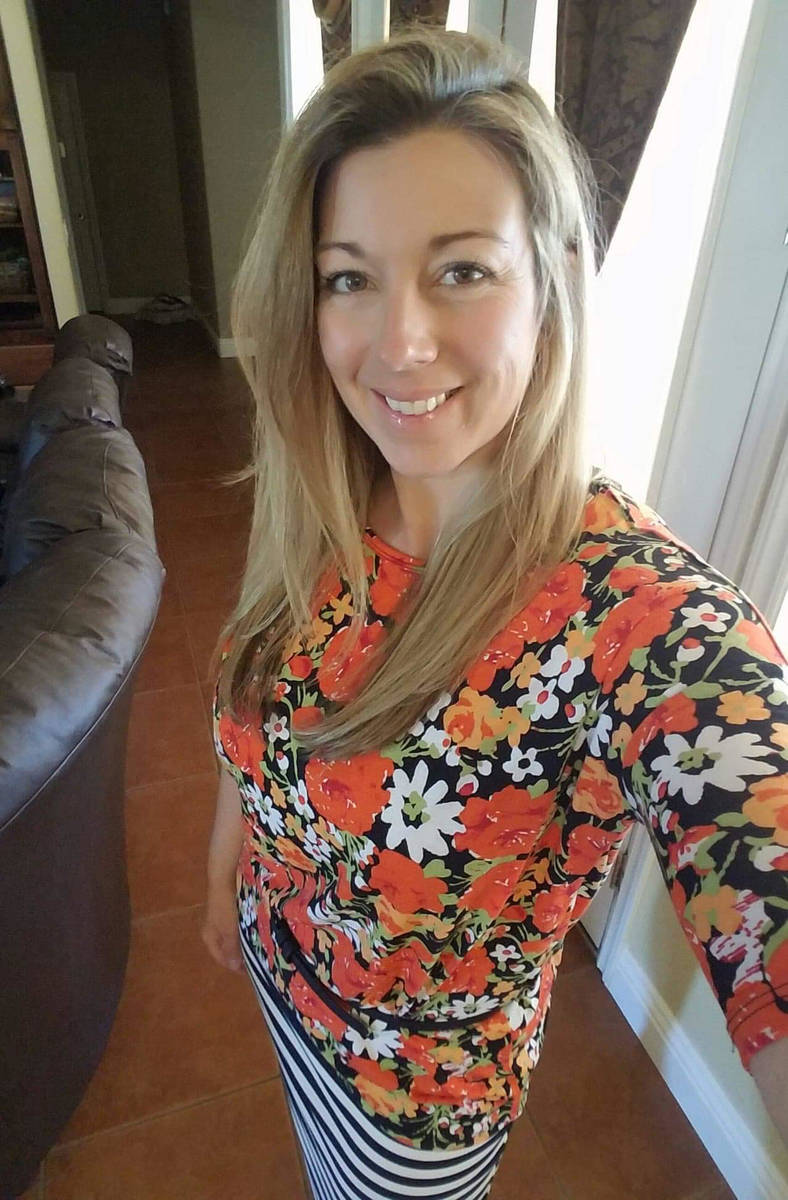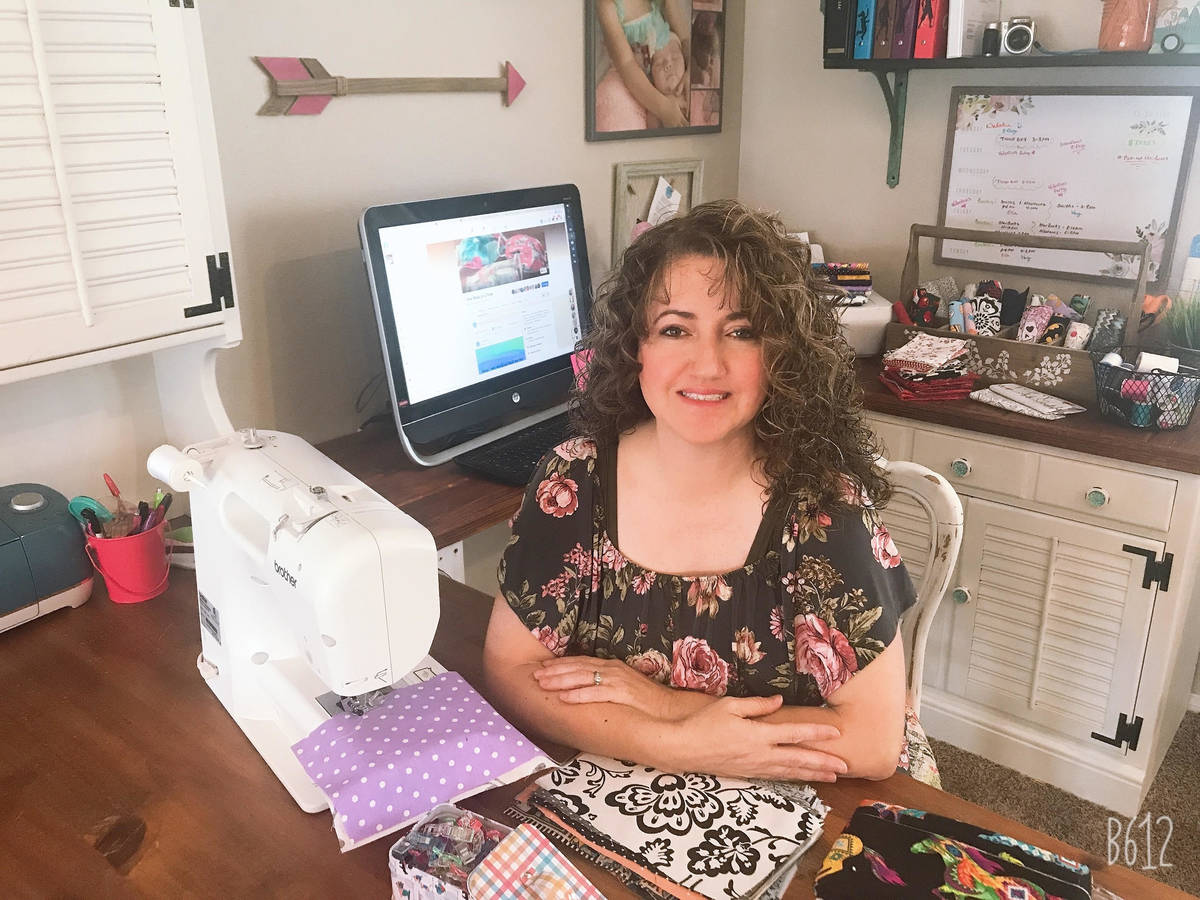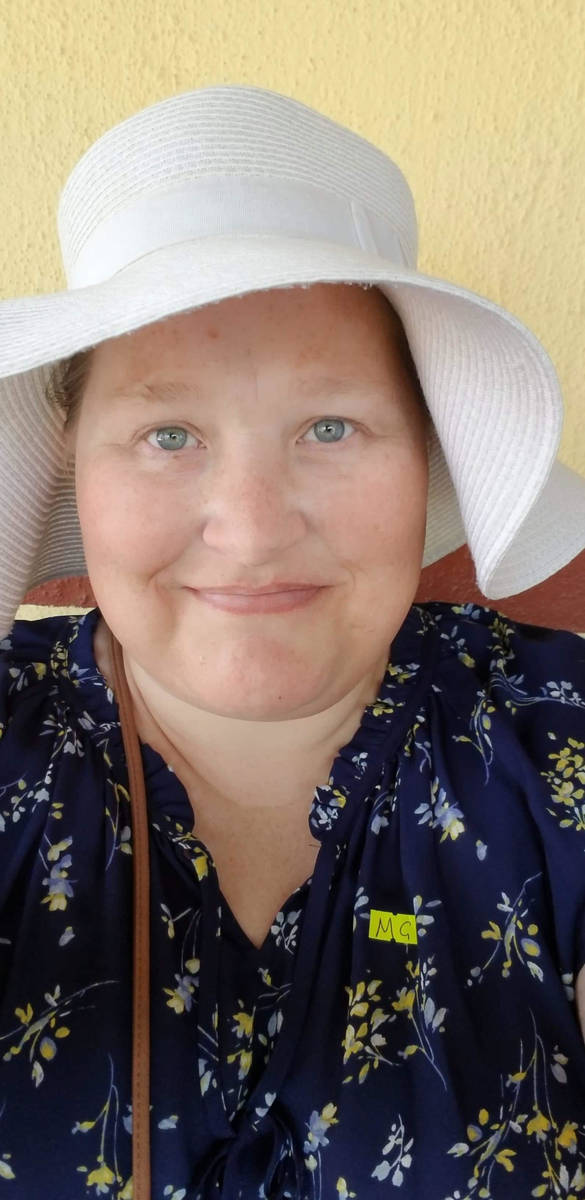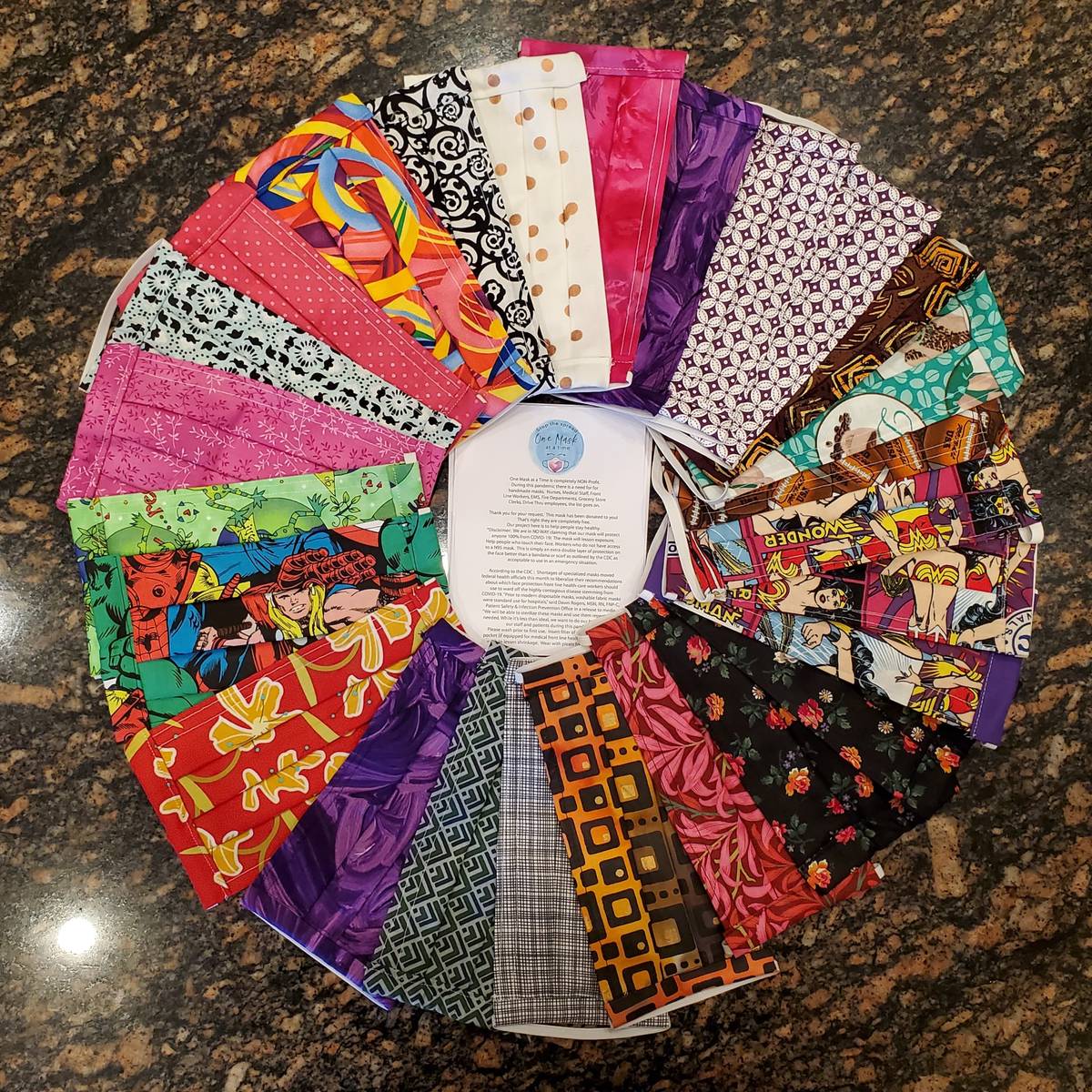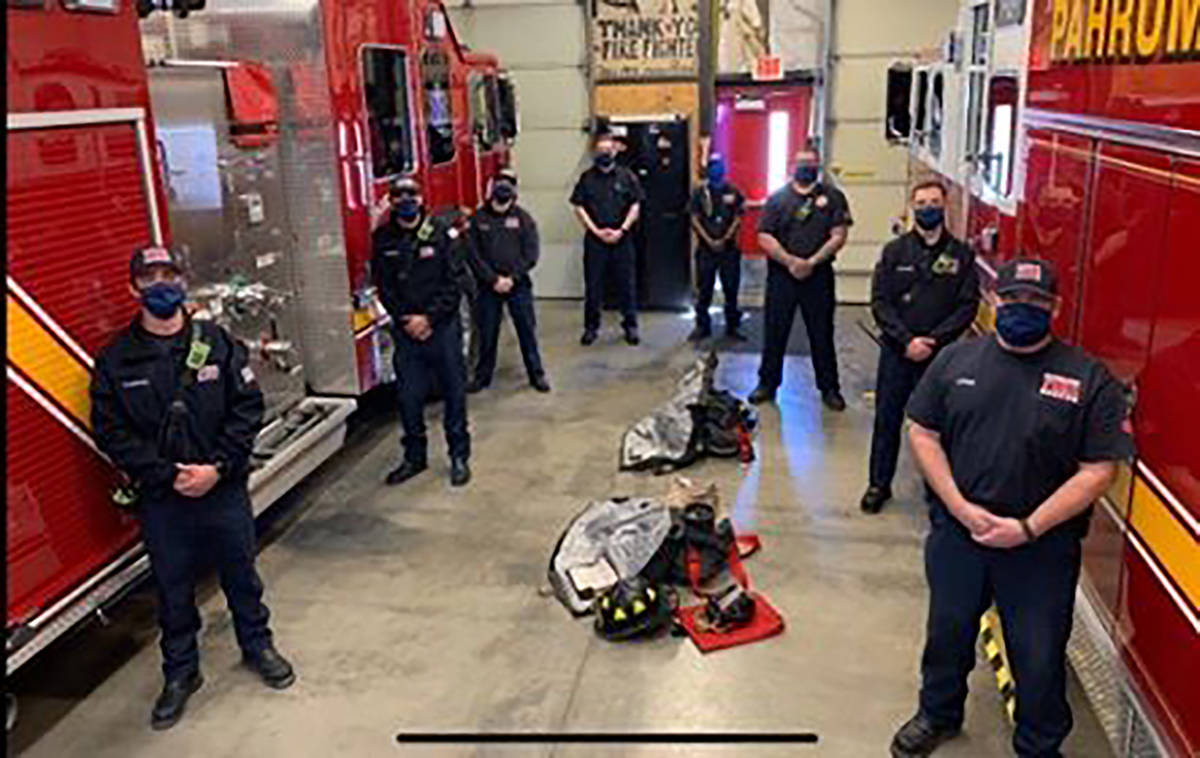Need for face masks spurs volunteers into action
Like civilians knitting their bit on the home front during World War II, thousands of makers all over the world are crafting handmade masks to help protect their family, friends and front-line workers from the invisible, insidious virus, COVID-19. In and around Pahrump, efforts range from a highly organized volunteer team that hit the ground running as a brand-new nonprofit, to a one-woman endeavor in an isolated Tecopa bungalow. From Girl Scouts to grandmas, together they’ve turned out thousands of colorful masks, sewn from supplies they had on hand or purchased with their own funds, and donated them free of charge to anyone in need.
Although the scientific debate continues on whether cloth face masks offer any significant protection from the virus, the national Center for Disease Control changed its guidelines on April 3. The new directive recommends the voluntary wearing of nonmedical cloth face coverings for everyone, especially in situations where social distancing can be difficult to achieve. Many studies show that fabric face coverings can at least decrease the passage of viral particles, and scientists emphasize that variables such as the kind of fabric and how many layers and whether a medical grade filter are added affect the results.
While the CDC announcement spurred many new sewists into action, both donating and selling handmade masks, several Pahrump residents were already ahead of the curve. Girl Scout leader and mom of two, Julie Perry had founded a nonprofit, called One Mask At A Time, and was commanding a network of nearly 60 volunteers in four states who were hard at work making masks to give away. The name, she said, is short for “Making a difference one mask at a time.”
Weeks before the CDC guidelines changed, workers in the medical field were calling for help in sourcing cloth face masks as their supplies of medical-grade face coverings were dwindling rapidly or even depleted. Perry, whose husband, Captain Scott Perry, works on the front lines with Pahrump Valley Fire and Rescue, was well aware of the shortage and began making masks in mid-March.
And then, Perry said, she thought “we’re all at home. I wondered if we could get a community together to do this. The need is so great.” Perry said she’s been amazed by the number and willingness of the volunteers who turned up.
The group began as a Facebook page that quickly exploded with both requests for masks and offers to help. In the first week there were 17 seamstresses working from their homes, Perry said. Coordinating with Virginia Lambert, of the Shadow Mountain Quilters group, they made masks for Pahrump Valley Fire and Rescue, for Desert View Hospital, the Nye County Sheriff’s Office, the post office and more. One volunteer, Wendy LeClear-Secord, has singlehandedly sewn over 800 masks so far, Perry said.
Perry proposed the idea of becoming formally organized as a nonprofit to friends Tamara Trudeau and Wendy LeClear-Secord, now admin and second admin of OMAAT. Eventually, to streamline things, Perry said, OMAAT shifted their operation to a website that went live last week at www.onemaskatatime.org. Perry said local web designer Shane Coursen of Let’s Talk Graphics spent two weeks donating his time and expertise to create the website and prepare it for launch.
Now, anyone who needs a mask can order one on the site, free of charge, Perry said. If the request comes from out of state, the order may be charged shipping costs only. The website queue won’t accept more than 500 requests at a time because “we never want to promise more than we can deliver.” To date, the group has received requests for nearly four thousand masks and has completed and delivered well over three thousand of those. Ninety percent of the masks go to local communities, including Las Vegas, Perry said, but they’ve also shipped masks to 12 different states, including New York.
Their current turnaround on requests is 3-5 days, Perry said “and we’re getting faster.” Volunteers who can’t sew are cutting the pieces and making them into kits, then leaving the kits at drop-off points for the sewers to pick up and finish.
“We have people helping us in extraordinary ways,” she said. For example, Tim and Pam Leavitt and their daughter Rachel Leavitt, of Pahrump, Perry said, purchased fabric with their own funds and began cutting and making ready-to-sew packs for local seamstresses to pick up and complete. “Behind the scenes, they are making a difference.”
The sewers leave the finished masks at drop-off points to be gathered and prepared for delivery. Operating from a spreadsheet in Google Docs, Perry said she can coordinate which seamstress is working on which order, which cutters have finished preparing kits, and where the drop-offs will take place so that people can receive their masks without personally interacting with the OMAAT volunteers.
Among those volunteers are some members of Perry’s Girl Scout troop, who are helping with sewing and cutting. When the local 4-H chapter received a call from their Nevada state office announcing a goal of 5,000 masks made by 4-H families, Coordinator Stormy Ingersoll said she turned to OMAAT and offered to join the effort of Perry and other volunteers.
Perry said she is proud of the work OMAAT is doing and believes it is making a difference, but the organization makes no medical claims, only that the masks can help lessen exposure. “We don’t claim our masks will protect you,” Perry said, “we’re not medical professionals and we don’t want our good deed to become a liability.”
The need is indeed great and even with a highly organized group like OMAAT operating at high volume, there is more work to be done and other sewers in and around Pahrump are helping to fill the void. Avid quilter Jada Chapman is working through her fabric stash with a group of friends who’ve been sewing masks since neighbor Lois Chambers asked for their help toward the end of March. Chapman was about to launch a new crafts business, called Doodad’z, with business partner Valarie Duther when the social distancing guidelines went into place and squashed any hope of attending craft shows. So the pair put their know-how and their fabric stash to work and began recruiting others, like their friend Pat Riedel, to sew with them, while, Chapman said, always following social distancing guidelines.
Some in their group of about eight volunteers cut, some sew, and some, like Lois Chambers, who had the initial idea for the project but couldn’t sew herself, help drop off the finished masks. They often use Chapman’s front porch as the drop-off and pick-up point, and carefully packaged deliveries are sometimes left on doorknobs or other designated drop-off points when possible.
“I have a garage full of fabric,” Chapman said, noting she doesn’t expect to run out of fabric any time soon, but sourcing things like elastic and interfacing is more of a challenge because of high demand. Turning out masks in batches of 20 or 40 at a time, Chapman’s volunteers have delivered hundreds of masks to Pahrump pharmacies, elderly care homes and the Pahrump Rehabilitation facility, as well as family, friends and health care workers in at least four other states. When a nephew of one of their volunteers said his New Orleans fire department could use over 300 masks, the group got to work in earnest.
“We’re getting orders every day,” Chapman said, and she could really use more help with sewing. The group even has an extra machine available.
In the small town of Tecopa, just over the California border below Death Valley, Christy Horne is sewing alone in her home, cutting through her fabric stash and leaving a basket of masks outside her front gate with a sign saying “free.” Horne, who is a performer used to traveling on the festival circuit, needed something to occupy her time in isolation.
Since she started a little over two weeks ago, Horne has taken mask requests from friends all over the country, including a woman who was recently widowed and wanted to have a custom mask made from a favorite T-shirt of her husband’s. Horne has donated her masks to local EMT’s, the Inyo County Sheriff’s Office, and the clerks at the general store in Shoshone, as well as neighbors and friends. She’s even sent masks to Scotland and England, she said. Horne estimates she’s made over 300 so far, using her own fabric and some donated by a friend whose grandmother was a quilter.
“I think we need to make masks part of our future fashion statement from here on out,” Horne said.
For the women sewing these masks, sometimes the days can be long, filled with a seemingly endless need, no end in sight to the daily requests for more. But being able to fight back against the invisible foe in some way brings a feeling of hope to the volunteers as well as the recipients who will wear the masks they make. In a nutshell, it “makes me feel less helpless,” Horne said.
“We can only do one day at a time,” said Chapman, and small batch by small batch, they are completing that order of blue cotton masks with flannel lining for the firefighters in New Orleans, delivering masks to an elderly couple across town and starting on a request from a friend’s daughter for a police department in Colorado.
OMAAT’s Perry said her days are intensely busy with the demands of a growing nonprofit, sewing masks herself, and taking care of her family. Right now, she said, it’s “go, go, go.” But, she added, “this won’t last forever.” The pace will slow eventually and although OMAAT was formed at a time of crisis, Perry said, it was built for the long term. “When the pandemic is over, there will still be a need.”
To donate supplies, volunteer your time or ask for masks, visit onemaskatatime.org. For more information and daily updates, visit them on Facebook at One-Mask-At-A-Time.
To volunteer to sew with Jada Chapman and friends or to donate supplies, call 916-257-2622.
Look for Christy Horne on her personal Facebook page.


